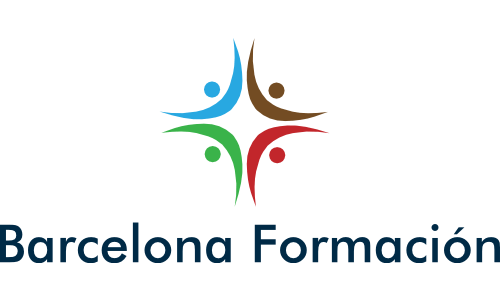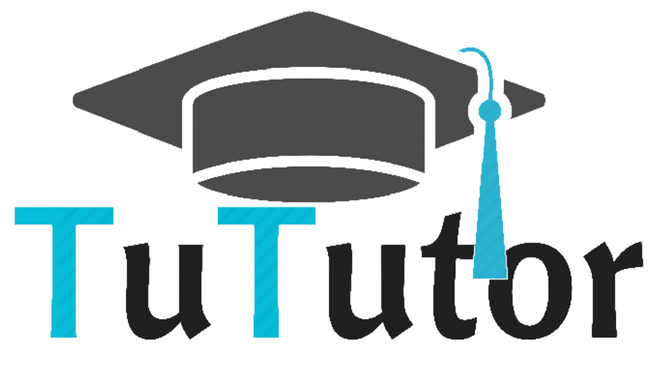CURSO DE INGLÉS
INGLÉS A1. NIVEL OFICIAL MARCO COMÚN EUROPEO
UNIT 1. NICE TO MEET YOU. Listening. Los pronombres personales de sujeto. El verbo to be. Reading. Los demostrativos: his, that, these, those. Los posesivos. Uso de la mayúscula. Speaking: Conociendo la fonética inglesa. El alfabeto. Presentarse. Vocabulario. Saludos. Datos personales. Países. Nacionalidades. Profesiones. Números. Colores.
UNIT 2: EVERYDAY LIFE. Listening. La fecha. La hora. Reading. Presente simple. Adverbios de frecuencia. Speaking: The letters and the sounds. Vocabulario. Verbos comunes. Días de la semana. Meses.
UNIT 3. HAPPY FAMILY. Listening. A, an, the or no article. Plural. Reading. El verbo to have. Genitivo sajón. Speaking: Word stress and intonation. Vocabulario. Familia. Físico.
UNIT 4. ALL ABOUT THE FOOD. Listening. Sustantivos contables y no contables. There is, there are. Reading. A, an, some, any. Expresar gusto: like, dislike. La expresión: Would you like…? y I’d like.. Speaking: Sonidos vocálicos. Vocabulario. Supermercado. Comidas del día. Adjetivos referentes a la comida. Verbos referidos a la comida. Envases.
UNIT 5. ARE YOU LOST?. Listening. El verbo can. Dar direcciones. Reading. Preposiciones de lugar: Here, there. Let’s. Speaking: Vocales largas y cortas. Vocabulario: Direcciones. La ciudad. Medios de transporte. Verbos referidos a las direcciones.
UNIT 6. FREE TIME ACTIVITIES. Listening: Pronombres personales de objeto. Pasado simple. Reading: Interrogativos. Question tags. Speaking: Diptongos. Vocabulario: Tiempo. Verbos relacionados con el tiempo atmosférico. Verbos irregulares
INGLÉS A2. NIVEL OFICIAL MARCO COMÚN EUROPEO
UNIT 1. DESCRIBING OURSELVES. Listening: Used to. Linking words. Reading. Comparative adjectives: superiority and inferiority. Comparative adjectives: equality. Speaking: Semivowel sounds. Writing: An essay. Vocabulary. Adjectives for personality. Adjectives for physical appearance. Hobbies.
UNIT 2. THE MEDIA. Listening. There was, there were. A few, a little. Reading: A lot of, much, many. How much, how many. Speaking: The schwa. Writing: A news report. Vocabulary: Journalism and media. Verbs related to news.
UNIT 3. ON HOLIDAYS. Listening. Be going to. Future simple: will. Reading. Prepositions of time. Adverb formation. Speaking: Voiced and voiceless consonants. Writing: A postcard. Vocabulary: Holiday places. Holiday objects. Verbs related to holidays
UNIT 4. WHERE DO YOU LIVE?. Listening: Present continuous. Make vs. do. Reading. Something, anything, nothing. Someone, anyone, no one. Speaking: Sh vs. S. Writing: An invitation. Vocabulary: Parts of the house. Housework.
UNIT 5. LET'S GO SHOPPING. Listening: Past continuous. Interrogative pronouns (what vs. which; who vs. whom; whom vs. whose). Reading: Imperative affirmative. Make vs. let. Speaking: Sh vs. Ch. Writing: An email. Vocabulary: Clothes. Expressions related to clothes. Types of shops.
UNIT 6. AT THE DOCTOR'S. Listening: Must, mustn’t. Should, shouldn't. Reading: Infinitive of purpose. Phrasal verbs. Speaking: The voiceless TH sound. Writing: A blog post. Vocabulary. Parts of the body. Illnesses. Verbs related to health.
INGLÉS B1. NIVEL OFICIAL MARCO COMÚN EUROPEO
INGLÉS B2. NIVEL OFICIAL MARCO COMÚN EUROPEO
UNIT 1. ATTITUDES AND BELIEFS. Video lesson: Daily dilemmas. Definite, indefinite and zero article. Reading: Morals in society. Nouns and noun suffixes. Collocations: say, speak, talk and tell. Vocabulary: lifestyles. Speaking. Phrasal verbs.Idioms: emotions. Writing an essay.
UNIT 2. SCIENCE AND PROGRESS. Listening: Building development. Pronouns and determiners. Reading: New IT's. Position of adjectives and adverbs. Collocations: intensifying and softening adverbs. Vocabulary: development and technology. Speaking. Phrasal verbs. Idioms: similes. Writing an article.
UNIT 3. PUBLICITY. Listening: English as a foreign national language. Verbs and objects. Reading: Innovation in advertising. Advanced verb tenses. Collocations: make. Vocabulary: media and marketing. Speaking. Phrasal verbs. Idioms: Headlines
Writing a review.
UNIT 4. OCCUPATIONS. Video lesson: Happiness at work. Use of modal verbs. Reading: The annoying routine. Conditional and subjunctive tenses. Collocations: work. Vocabulary: Career and work. Speaking. Phrasal verbs. Idioms: jokes. Writing a report
UNIT 5. ECONOMY AND MARKETS. Listening: Shopaholics. Contrast and concession connectors. Reading: Family resources
Relative clauses. Collocations: finances. Vocabulary: business and finance. Speaking. Phrasal verbs. Idioms: binomial pairs. Writing an article.
UNIT 6. ETHICS AND REGULATIONS. Video lesson: Sources of law. Reported speech. Reading: Best advisor in town
Passive voice. Collocations: authority. Vocabulary: crime and punishment. Speaking. Phrasal verbs. Idioms: proverbs. Writing a letter.
INGLÉS C1. NIVEL OFICIAL MARCO COMÚN EUROPEO
UNIT 1. FAMILY PEOPLE. Listening: Family time. Reading: Sharing the housework. Grammar : Present tenses. Speaking: Unestressed words. Writing: E-mails. Vocabulary.
UNIT 2. ON HOLIDAYS. Listening: Where to go?. Reading: Best holidays ever. Grammar: Past tenses. Speaking: Stress in compound words. Writing: A story. Vocabulary
UNIT 3. STARTING A NEW JOB. Listening: First day at work. Reading: Teen jobs. Grammar: Future tenses. Speaking: /m/, /n/ and /?/. Writing: Formal letters. Vocabulary.
UNIT 4. ARTS AND ENTERTAINMENT. Listening: Rock or drama?. Reading: Who's got talent?. Grammar: Conditional . sentences. Speaking: /?/, /j/ and /t?/. Writing: Essay.Vocabulary
UNIT 5. SALES! . Listening: Online or traditional shopping?. Reading: Harrods. Grammar: Modal verbs. Speaking: /a:(r)/ and /ea(r)/. Writing: A review. Vocabulary
UNIT 6. LIVING WORLD. Listening: Interview with a guide. Reading: Eco-friendly houses. Grammar: Reported speech. Speaking: /?/, /?/ and /u:/. Writing: Articles. Vocabulary
INGLÉS C2. NIVEL OFICIAL MARCO COMÚN EUROPEO
UNIT 1. ON THE ROAD. Listening: Looking for a destination. Reading: Game of thrones, the locations. Listening: Visiting the town. Grammar: Tense Review. Past Time. Writing: Informal Letters. Vocabulary files: Airport and Accommodation. Idioms
UNIT 2. FIGHTING FIT!. Listening: Tie for a check up!. Reading: A healthy lifestyle. Listening: In the examination room. Grammar: Modal auxiliaries I and II. Present, future and past. Writing: The essay. Vocabulary files: Body parts. Body Organs. Health & Medicine. Idioms
UNIT 3. TIME OFF! Listening: Hanging out with a friend. Reading: How to get the most of your leisure time. Listening: Hobbies and personality. Grammar: Tense review. Conditionals and If- sentences. Writing: The review. Vocabulary Files: Leisure activities. Hobbies. Idioms
UNIT 4. FAIR PLAY. Listening: Looking for adventure. Reading: Training for the Olympics. Listening: Are you keen on Sports?. Grammar: Relative clauses and non finite clauses. Relative pronouns. Writing: Competition Entry. Vocabulary files: Sports. Idioms
UNIT 5. MOTHER NATURE. Listening: Climate change. Reading: Composting controversy. Listening: Endangered species. Grammar: The passive. Writing: A proposal. Vocabulary files: Environment and nature. Idioms
UNIT 6. ROLLING NEWS. Listening: Journalism metamorphosis. Reading: Ethics and journalism. Listening: Up to date. Grammar: Reported speech. Reporting verbs. Writing: The article.. Vocabulary files: Press, radio and television. Idioms
*Programas sujetos a actualizaciones
UNIT 1. BIRTHDAY PARTY. Planning a birthday party. La expresión del deseo. Would like. La posición de enough. Family matters. La diferencia entre presente simple y presente continuo. Los adjetivos acabados en-ing. I just love music. Little, a little y much. Few, a few y many. El grado comparativo de los adjetivos.
UNIT 2. LAPTOP OR DESKTOP. Laptop or desktop. El participio de pasado, adjetivo. - Los usos de all. Science is amazing. Los pronombres posesivos. El comparativo de igualdad. Las expresiones as much… as y as many… as. Technology will change the future. Also, as well y too. Must y have to.
UNIT 3. FLATMATES. A new flatmate. La expresión used to. El adverbio yet. Los adverbios ever y never. La posición de even. People, people, people. El grado superlativo de los adjetivos. El modo imperativo. Some y any. El pasado continuo. Hobbies. Can, could y be able to. Las oraciones interrogativas indirectas. How much y how many. La estructura not… either
UNIT 4. LOCKED OUT OF MY HOUSE. Locked out my house. Always + Presente Continuo. El futuro próximo (going to). El Condicional Simple. La diferencia entre futuro simple y futuro próximo. Emergency!!. El Uso y la Omisión del Artículo The. El pasado simple. Las preposiciones in y at. Las question tags. A good health. La estructura to get+adjetivo. Verbos + oración de infinitivo. Los modales should y ought to. Las palabras compuestas
UNIT 5. THE WRONG TRAIN. The wrong train. La expresión to look forward to. Verbo "going to". I really enjoyed my trip. El presente perfecto. Los tiempos de pasado. A nice hotel and restaurant. Had better y would rather. Must y have to.
UNIT 6. THERE’S WATER EVERYWHERE. There’s water everywhere. Los adverbios ever y never. El adverbio yet. It’s animal!!. El pasado continuo. .The planet we live in. Can, could y be able to. Futuro simple.
UNIT DIDÁCTICA 7. WATCHING TV. Watching TV. Conectores de tiempo + presente simple. Should / ought to: probabilidad. TV programmes and famous people. La voz pasiva 1. La voz pasiva 2. Must probabilidad. Me and the movies. Los pronombres y adverbios relativos 1. Los pronombres y adverbios relativos 2. Los auxiliares will y shall.



